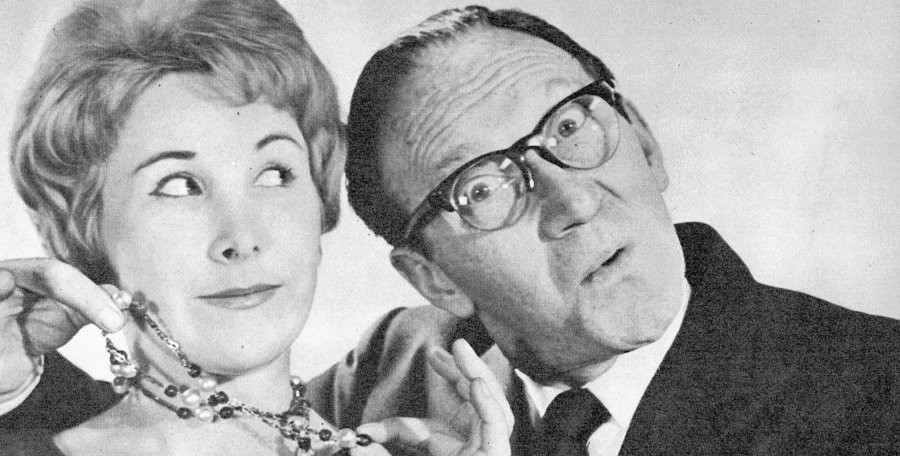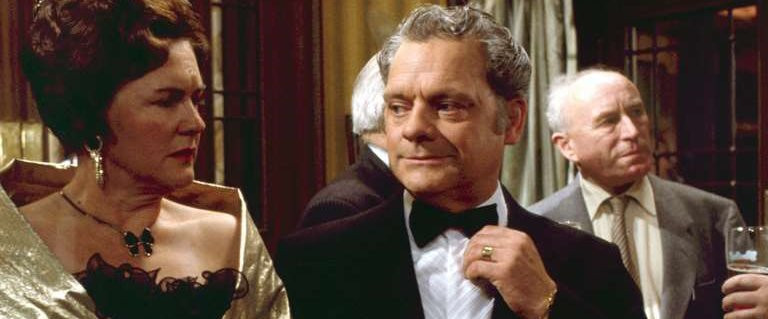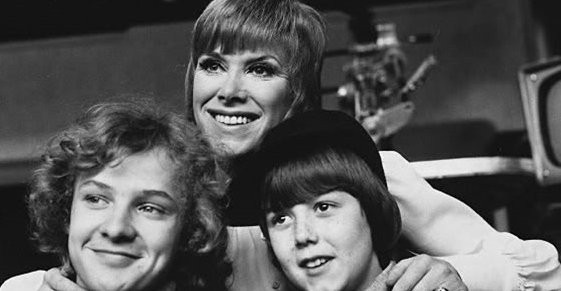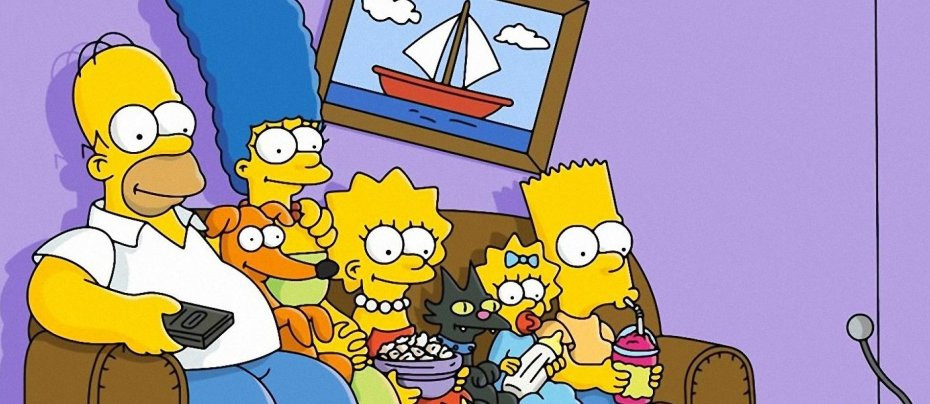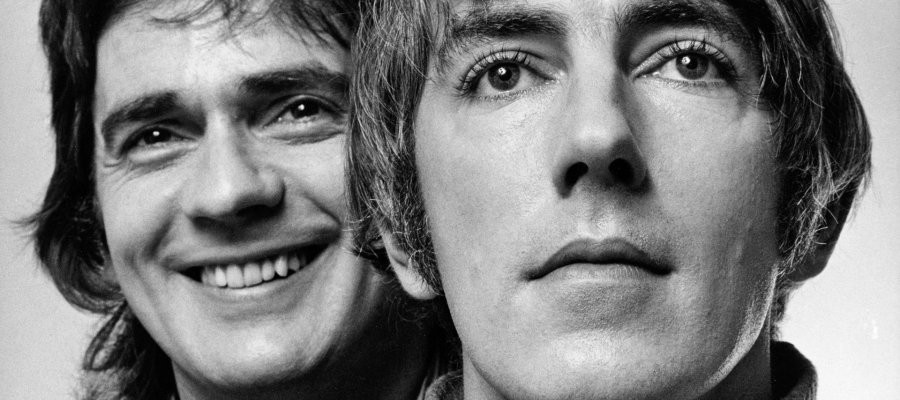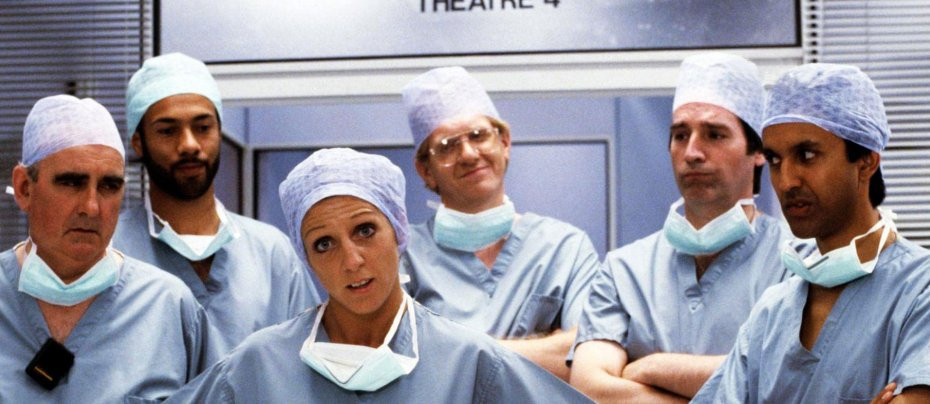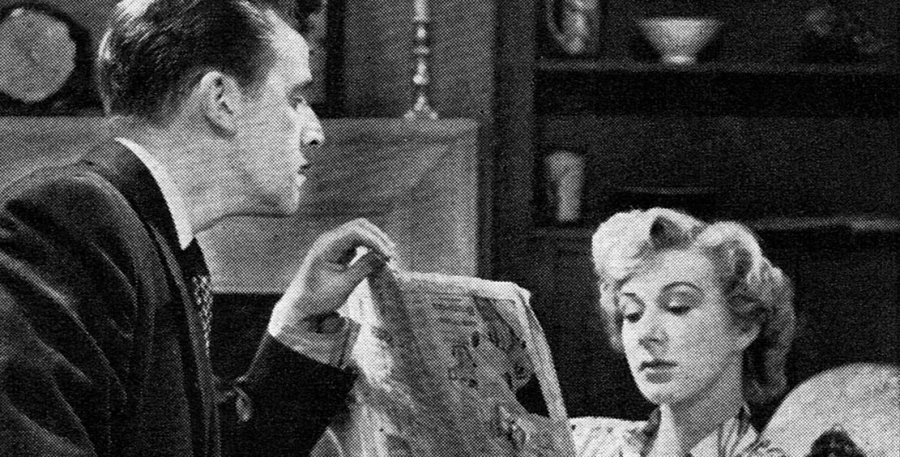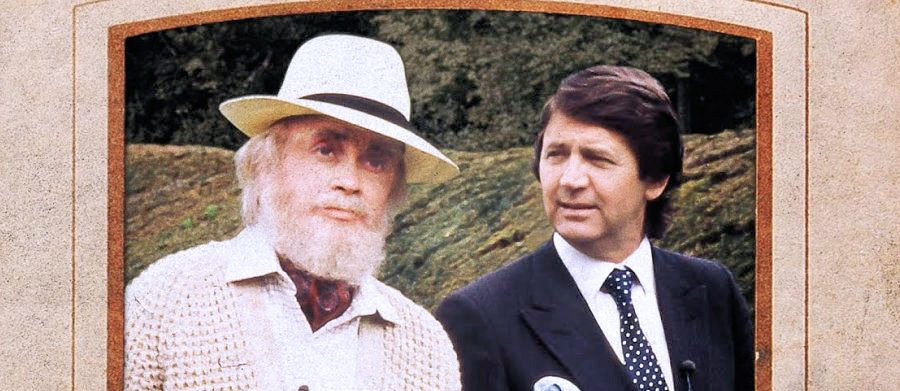
Sir Norbert Smith: A Life
1989 - United KingdomReview: John Winterson Richards
One cannot argue with success, and Harry Enfield's career is certainly successful - but it is not beyond criticism. Some criticised him early in his career for overreliance on stereotypes. In more recent years, he has been criticised for overreliance on stock characters and jokes. There is some substance to that criticism, even if it must also be said that those characters and jokes survive because they are still very amusing.
However, should any critic be misled into equating that with a general lack of originality or versatility or both, the Case for the Defence is summed up in Sir Norbert Smith: A Life, Enfield's brilliant 1989 fake documentary, or "mockumentary," on the fictional great actor of that name.
It has more original ideas per minute than any British comedy programme between The Goodies and Star Stories. Indeed, perhaps one of the reasons it is not better known and better appreciated is that the clever references come so thick and fast that many members of the audience may have found it hard to keep up. It also depends of having a good working knowledge of the history of cinema and 20th Century British culture in general. The more you know about these subjects, the more you will enjoy Sir Norbert.
You get bonus points if you are familiar with, for example, Will Hay, Jack Warner, Ministry of Information films, "kitchen sink" drama, and the British pioneering the Western in Spain before the Italians took over there - yes, that really happened, but people tend not to talk about it.
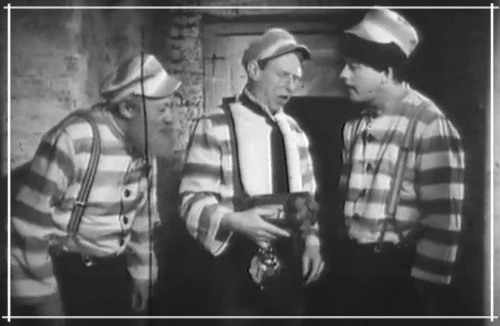
The spine of the documentary is provided by copying a very prestigious South Bank Show on Lord Olivier made a few years before. That was an extremely respectful tribute to the man who at that point was generally acknowledged as the greatest theatrical actor of his time. Its interviews are memorable because one was never quite sure if Olivier was already a slightly vague elderly gentleman or an actor rather enjoying himself by playing the part of a slightly vague elderly gentleman. The truth might be somewhere in between, a slightly vague elderly gentleman rather enjoying himself by playing a slightly vague elderly gentleman.
The "mockumentary" adopts both the format and the style of the Olivier documentary. One has to wonder how many of the viewers recognised how closely 'Sir Norbert Smith: A Life' followed this role model. Some of the scenes are very similar. Above all, both projects share the same presenter, Melvyn Bragg, who keeps a perfect straight face throughout. Indeed, it becomes positively stone-like in reaction shots to the unfunny jokes told by a very old fashioned comedian.
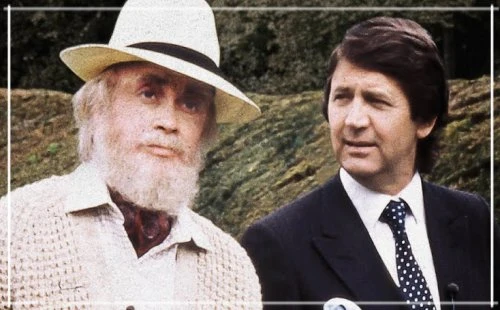
Sir Norbert is based very much on Olivier, but not exclusively. He also has episodes in his career in which he resembles Kenneth More, Trevor Howard, and Richard Burton, among many others. Olivier is mentioned separately, making it clear that he is not Smith.
Indeed, part of the joke is that, during the many low points in his career, Smith accepted projects that Olivier would never have touched - even if more knowledgeable cinephiles might well see this as a satirical reference to the many embarrassing jobs Olivier really did do for the money, especially in his later years.
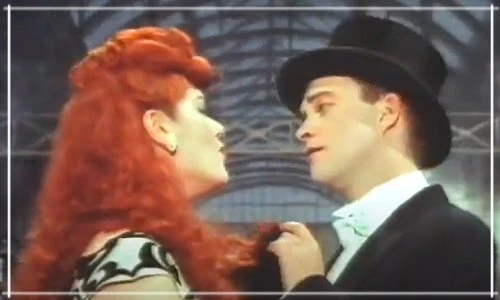
Among the most humiliating for Smith is an American made 1940 musical about London written by people who have obviously never been there, and who have in general very little understanding of history or geography. This is, of course, an accurate reflection of most Hollywood projects set abroad (the famous Executive Producer Irving Thalberg once said that it did not matter that the sea was visible in Paris in one of his films since few in his target audience would have been there). Smith was involved because, like a number of real life British stars at the time, he seems to have felt that the best way to contribute to the War Effort was to "raise morale" by making films in the United States. Yes, this happened too.

After the War, Smith, like Olivier, made his reputation as a Shakespearean - but Smith went one better than Olivier by having Noel Coward help with the adaptation. The result is a 'Hamlet' that apes the visual style of Olivier's film but in which the dialogue is, er, somewhat different.
He then went on to what was one of his best known roles, in a project reminiscent of 'Brief Encounter' except in one crucial respect...
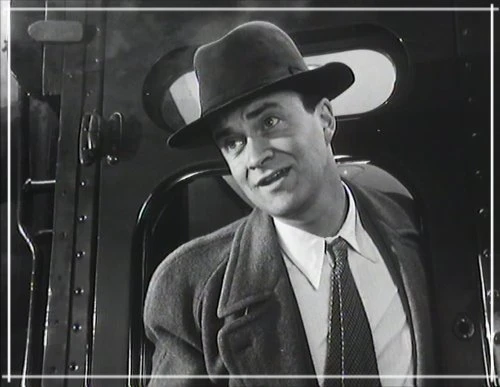
As one of Britain's best known actors, he opened his own film studio. Sadly we are not shown any of the Ealing-esque comedies it produced, which is something of a missed opportunity. We do get a series of musical biographies, referencing Ken Russell's but in a Disneyfied style.
It was after he got his Knighthood that things took on a more depressing tone for Smith in the 1960s. At first, this was deliberate when, following Olivier's example, he expanded his repertoire to include some of the more challenging contemporary drama that was then becoming more fashionable. Indeed, he was more courageous than Olivier in that his impeccably middle class persona did not discourage him from taking part in one of those "social realist" films that purported to show the raw truth of working class life.
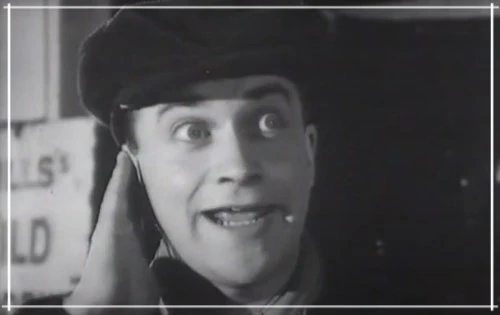
The result is one of the highlights of the whole "mockumentary," a sharply observed satire on a genre that was once acclaimed for its authenticity but that now seems rather staged. Nothing ages faster than an attempt to be modern. Indeed, even at the time, there was something slightly off about the whole thing. One cannot help thinking of one of the better Monty Python sketches, written when the "social realist" movement was beginning to become unfashionable, in which a tough working class playwright (Graham Chapman), worn down by hard graft at t'National Theatre, is disgusted by his effeminate son (Eric Idle) who dreams of being a mining engineer. Class, including the portrayal of working class people by middle class people, is a frequent theme in Enfield's work, and in Sir Norbert's performance in 'It's Grim Up North,' we see a truly bad actor resort to every cliché imaginable.
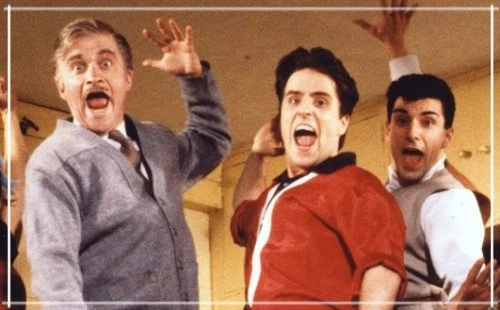
Let us be charitable and suggest that Sir Norbert might have been better if his onscreen career was not being undermined by problems in his personal life - notably his heavy drinking. His studios closed and he took work wherever he could get it. A series of clips from a variety of hilariously bad films sums up the decline of the British film industry during this dark period. The best is a scene stolen almost directly from 'Where Eagles Dare.' By this time Sir Norbert has morphed from Olivier into Richard Burton.
The whole thing is a treat for any cinephile, as well as a demonstration of the broad cinematic literacy of Enfield and his co-writer, Geoffrey Perkins. It is also a great showcase for Enfield's wider talents as an actor and an impersonator. He obviously has great fun playing a bad actor, as only a good actor can do, and the only thing better than impersonating some of the great names of British cinema is impersonating them as Sir Norbert.
Seen this show? How do you rate it?
Seen this show? How do you rate it?
Published on July 24th, 2020. Written by John Winterson Richards for Television Heaven.


